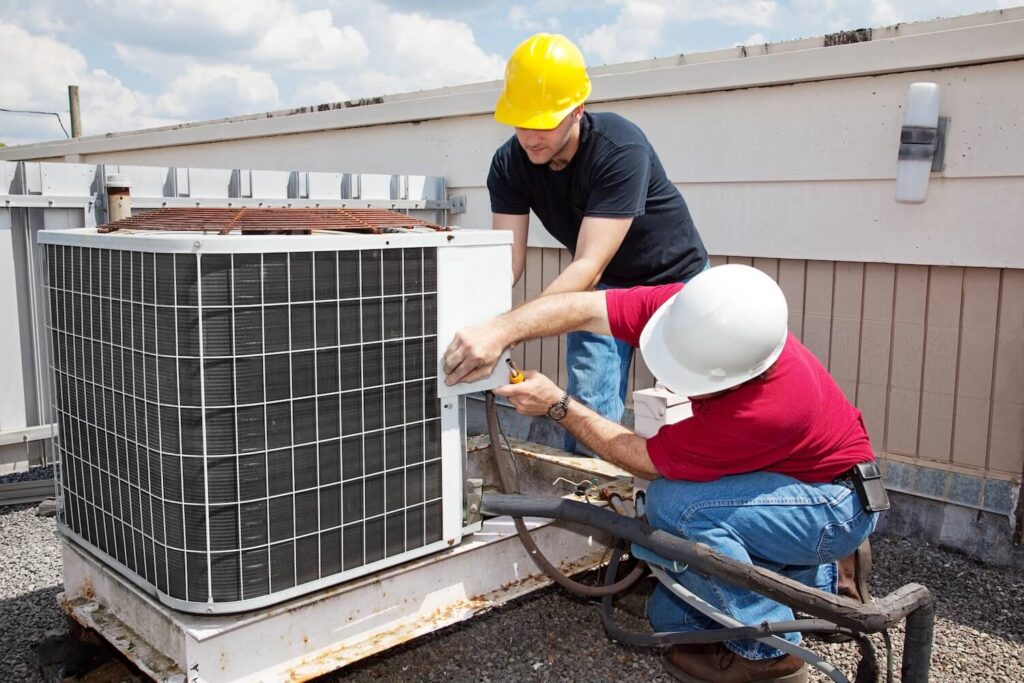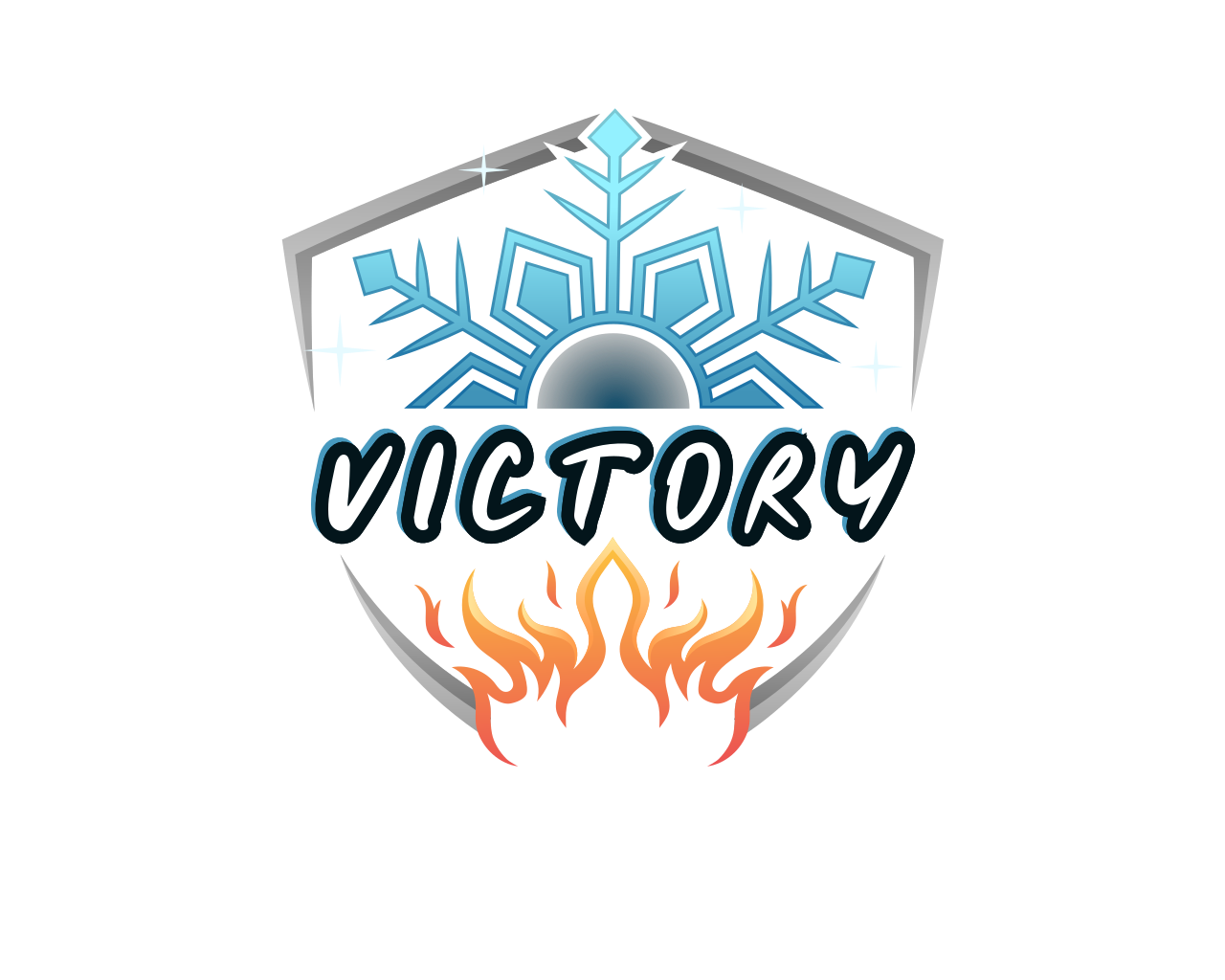
When running a business, many factors contribute to its success, from managing staff and maintaining customer satisfaction to ensuring a comfortable and productive environment. One often-overlooked aspect of ensuring your business remains efficient and cost-effective is the HVAC system. Whether you’re in a commercial office, retail space, warehouse, or restaurant, the Heating, Ventilation, and Air Conditioning (HVAC) system plays a pivotal role in creating a productive, safe, and comfortable atmosphere. Yet, like any other essential system in a business, it requires regular care and maintenance to continue functioning optimally.
Seasonal professional HVAC inspections are critical to ensuring the system operates efficiently throughout the year. These inspections might seem like an unnecessary expense, but they can, in fact, save your business significant amounts of money. Through improved energy efficiency, the prevention of costly breakdowns, extended equipment lifespan, enhanced air quality, and more, seasonal HVAC inspections can safeguard both your finances and your operational efficiency.
In this article, we will explore in-depth how regular HVAC inspections can directly impact your business’s bottom line. Let’s take a closer look at why investing in seasonal professional HVAC inspections is an essential strategy for your company’s financial health.
1. Improved HVAC Energy Efficiency: A Major Cost Saver
The HVAC system is often one of the largest energy consumers in a commercial building. Whether you’re heating the space during the winter months or cooling it during the summer, your HVAC system is continuously running, often for long hours. The more energy-efficient your HVAC system is, the less it costs to operate, which can significantly lower your utility bills.
How HVAC Inspections Improve Energy Efficiency:
When a professional technician inspects your HVAC system, they thoroughly clean and service components that may have accumulated dirt, debris, or wear and tear. Some of the critical areas they inspect and clean include:
- Air Filters: Over time, air filters become clogged with dirt, dust, and other particles. Dirty filters impede airflow and make your system work harder to maintain the desired temperature. This increased workload leads to higher energy consumption. A technician will replace or clean filters, ensuring optimal airflow and efficiency.
- Condenser and Evaporator Coils: These coils are responsible for transferring heat in the system. Dirty coils can reduce the system’s ability to remove heat, causing it to overwork and consume more energy. A clean coil ensures that the system uses less energy to regulate temperature effectively.
- Air Ducts: Ductwork can accumulate dust and mold, restricting airflow and reducing the system’s efficiency. A professional HVAC technician can clean out the ducts to ensure that air flows freely and is evenly distributed throughout the building.
- Thermostat Calibration: The thermostat controls the system’s cycles, and even minor issues here can cause the system to run longer than necessary. A technician will ensure that the thermostat is calibrated correctly and operating as it should, preventing unnecessary energy use.
By addressing these areas during a seasonal inspection, you can ensure your HVAC system is running at its best, reducing energy consumption. Even small inefficiencies, if left unchecked, can add up to significant costs over time. Regular inspections ensure that your system operates efficiently, lowering your energy bills and reducing the overall operational costs for your business.
2. Prevention of Costly HVAC Repairs and Emergency Breakdown: Saving on Repairs and Downtime
There is nothing more costly than an unexpected HVAC breakdown, especially during extreme weather conditions when the system is working its hardest. An emergency repair or replacement can be extremely expensive, and in some cases, it may cause significant downtime, disrupting business operations. However, regular professional inspections help prevent unexpected failures by identifying small issues before they become big, expensive problems.
How Inspections Prevent Costly Repairs:
HVAC systems are complex and contain many moving parts, all of which can wear out over time. Some of the most common problems HVAC systems face include:
- Faulty Wiring: As the system ages, the wiring can degrade, leading to shorts or malfunctions. A technician will check for any signs of wiring issues and replace damaged components to prevent electrical problems.
- Refrigerant Leaks: If your system’s refrigerant is low due to a leak, the system will not work efficiently, potentially causing expensive repairs or even system failure. During an inspection, a technician can check the refrigerant levels and seal any leaks.
- Worn-out Parts: Parts such as belts, bearings, and motors naturally degrade with use. If left unaddressed, these parts can fail and cause costly breakdowns. Seasonal inspections allow technicians to identify signs of wear and replace worn-out components before they fail.
- Condensate Drain Issues: Over time, debris or mold can clog the condensate drain, leading to water damage or system malfunction. Regular inspections can prevent this from happening, avoiding costly water damage and system repairs.
By identifying these issues early, professional HVAC inspections allow your business to address problems while they are still minor and manageable. Small repairs are always more affordable than dealing with a full system breakdown or needing to replace expensive components. Furthermore, avoiding emergency repairs helps maintain business continuity and reduces the possibility of unscheduled downtime that could affect customer service or employee productivity.
3. Extended Lifespan of Your HVAC System: Maximizing Your Investment
HVAC systems are a significant capital investment for most businesses, and you want to ensure they last as long as possible. Replacing an HVAC system can be a major financial burden, especially for large commercial HVAC units that cost tens of thousands of dollars. However, with regular maintenance through seasonal inspections, you can prolong the lifespan of your system.
How Inspections Extend HVAC Lifespan:
- Routine Care Reduces Wear and Tear: Just like any other machine, HVAC systems experience wear and tear over time. Neglecting regular maintenance can cause the system to deteriorate faster, leading to premature failure. Seasonal inspections involve cleaning and servicing various components, which helps prevent the system from working harder than necessary.
- Preventing Major Malfunctions: By identifying minor issues early, you can fix them before they cause major damage to the system. For example, replacing a worn-out fan belt before it snaps can prevent it from damaging other components like the motor or compressor.
- Optimizing Efficiency: A well-maintained system runs more efficiently, reducing the amount of stress placed on individual parts. When the system operates smoothly, it’s less likely to experience significant issues that would lead to the need for a replacement.
An HVAC system that is regularly inspected and maintained can last many more years than a neglected one. Extending the life of your HVAC system means you’ll spend less money on replacements and avoid the stress of an unexpected major repair. This means that regular seasonal HVAC inspections can be a highly effective way to protect your business’s bottom line by maximizing the return on your HVAC investment.
4. Improved Air Quality: Healthier Environment for Employees and Customers
Indoor air quality is essential for maintaining a healthy and productive environment in your workplace. Poor air quality can lead to various health issues, including allergies, respiratory problems, and fatigue, all of which can affect employee performance and increase absenteeism. In customer-facing businesses, such as retail stores or healthcare facilities, poor air quality can also drive customers away and damage your reputation.
How HVAC Inspections Improve Air Quality:
- Cleaner Air Filters: When filters are clogged with dust, dirt, and allergens, they are unable to trap contaminants effectively. This leads to poor air quality and higher health risks. Seasonal inspections ensure that filters are replaced regularly, promoting better air circulation and cleanliness.
- Ductwork Cleaning: Dust, mold, and bacteria can accumulate inside the ducts over time, circulating these contaminants throughout the building. A professional HVAC inspection includes a thorough duct cleaning, which helps maintain clean, healthy air for employees and customers.
- Humidity Control: HVAC systems also help regulate humidity levels within the building. Excessive humidity can promote the growth of mold, while low humidity can lead to dry skin and respiratory irritation. Properly calibrated HVAC systems ensure that humidity levels are maintained within a comfortable range, improving indoor air quality and creating a healthier environment.
Investing in seasonal HVAC inspections not only enhances energy efficiency but also plays a significant role in creating a healthier environment. Healthy employees are more productive, while customers are more likely to return to a business with excellent air quality.
5. HVAC Compliance with Industry Regulations: Avoiding Fines and Penalties
Depending on the type of business you operate, there may be regulatory requirements regarding air quality, heating, cooling, and ventilation. For example, certain industries may have specific temperature or humidity requirements for employee comfort, while healthcare facilities must maintain strict air filtration standards. Failing to meet these requirements can result in fines or even lawsuits, which can be costly and damage your business’s reputation.
How Inspections Help Ensure Compliance:
- Meeting Temperature and Humidity Standards: HVAC inspections ensure that your system is maintaining the required temperature and humidity levels for your industry. Regular maintenance can help avoid any violations of industry regulations related to workplace comfort or air quality.
- Energy Efficiency Standards: Many industries are also required to meet specific energy efficiency standards. A professional HVAC inspection can help ensure that your system is operating in line with these regulations, potentially saving your business from energy-related penalties or fines.
By staying on top of HVAC maintenance, your business can avoid the risk of non-compliance, ensuring that you meet all industry regulations and avoid any potential financial penalties.
6. Predictable Maintenance Costs: Simplified Budgeting and Planning
When HVAC maintenance and repairs are unpredictable, they can disrupt your company’s financial planning. Seasonal professional HVAC inspections provide a predictable schedule for maintenance, allowing you to budget for these costs in advance. Rather than waiting for an emergency breakdown, you can plan your finances with certainty and avoid unexpected, large expenses.
How Inspections Make Maintenance Costs Predictable:
- Scheduled Maintenance: With regular inspections, maintenance costs become part of your annual operating expenses, making it easier to allocate funds and avoid unexpected financial strain.
- No Surprise Repairs: By identifying minor issues early, HVAC inspections ensure that you won’t face unexpected major repairs that could strain your budget. Routine inspections give you peace of mind, knowing that your HVAC system is running smoothly without costly surprises.
Having a predictable schedule for HVAC systems inspections helps streamline your business’s financial planning and ensures that HVAC-related expenses don’t disrupt your overall budget.
HVAC Inspections Conclusion
Seasonal professional HVAC inspections are a small investment that can lead to significant savings and benefits for your business. From improving energy efficiency and preventing costly repairs to extending the life of your equipment and improving air quality, regular HVAC inspections provide an essential safeguard for your bottom line. Additionally, by ensuring compliance with industry regulations and simplifying maintenance costs, these inspections contribute to smooth operations and healthier business environments.
In a time when operational efficiency is key to staying competitive, businesses that prioritize HVAC inspections reap the benefits of lower energy bills, fewer breakdowns, extended equipment lifespan, and a healthier work environment for employees and customers. The upfront cost of a professional HVAC inspection is minimal compared to the potential savings and the assurance it provides, making it a wise and essential investment for any business.
By making seasonal HVAC inspections a priority, you’re not only protecting your equipment but also safeguarding your business’s financial health. So, don’t wait until there’s a problem—schedule your seasonal HVAC inspection today and enjoy the peace of mind that comes with knowing your HVAC system is ready to perform at its best throughout the year.
